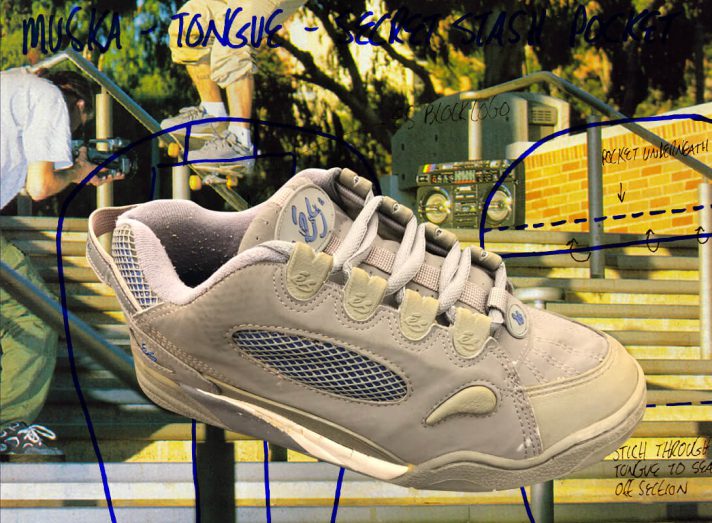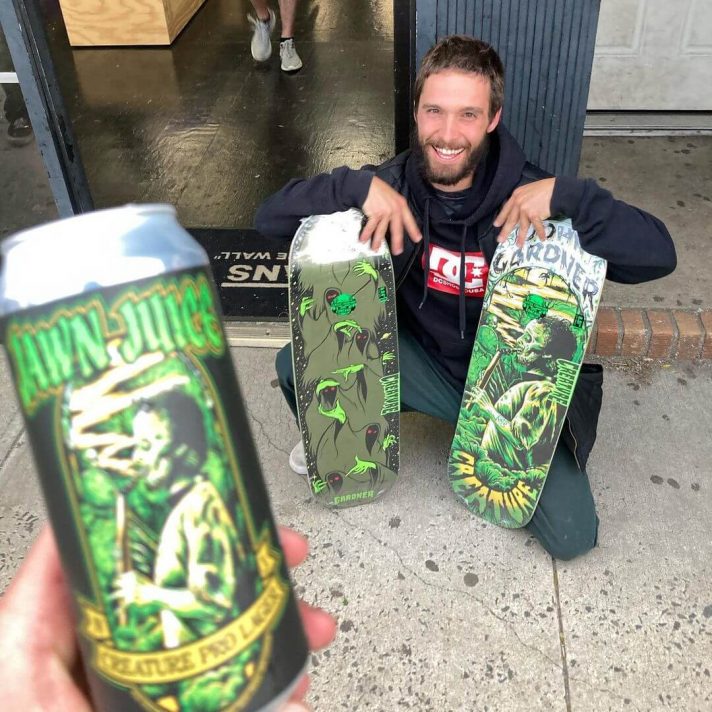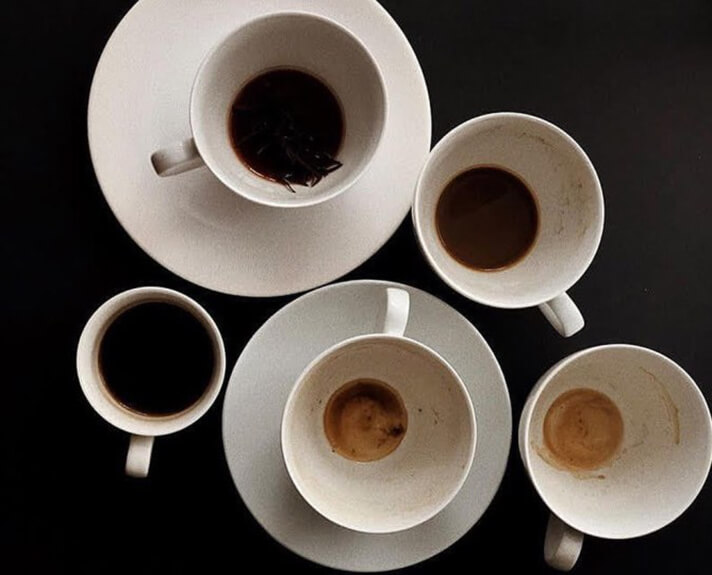
Collages by Requiem For A Screen
There’s no shortage of talk about a deck’s notorious resistance to inflation. But what about shoes? While something like a Lebron in 2019 is substantially more expensive than a Jordan in 1999, skate shoes have hovered around the same average $70-80 price tag for the better part of two decades, even as skateboarding itself has grown and adapted to new trends, technologies, and customers. Meanwhile, every fashion house in Europe has been raking in the money these past few years, pushing puffy sneakers reminiscent of old skate shoes.
We tracked down the principal figures behind the first three-figure skate shoe, released in 1997, and got their story on what was as much of an anomaly as it was a watershed moment for skateboarding as a cultural phenomenon, and style of footwear design. (Keep in mind that, adjusted for inflation, $100 in 1997 is the equivalent of $156 in 2019.)
+++++++
What was the skate shoe landscape like at the start of the nineties?
Don Brown, Chief Brand Strategist at Sole Tech: Airwalk, Vans and Simple were the only other shoe brands. They had become so mainstream and rigid — and there was a dip in the economy, so they scrambled to get sales wherever they could. Pierre [Andre Senizegues, founder of Sole Technology] was doing the distribution for Etnies at the time, bringing it over from France. When skateboarding crashed, vert and freestyle were pretty much eliminated. There was a whole generation of upstarts, like Rocco and them, and everyone in skateboarding rode for Etnies at some point.
Chad Muska: There were a hundred riders on Etnies, or something crazy like that. Even that High Five video had so many people in it. The shoe industry then was like, “Oh, this company is going to give you free shoes. Maybe there’s a chance you get paid.” It was so secondary to boards. There were early pro shoes, like the Half Cab, the Natas, and the SLB, but I think the real start of the skateboard shoe industry being serious was when they began making videos.
More »








